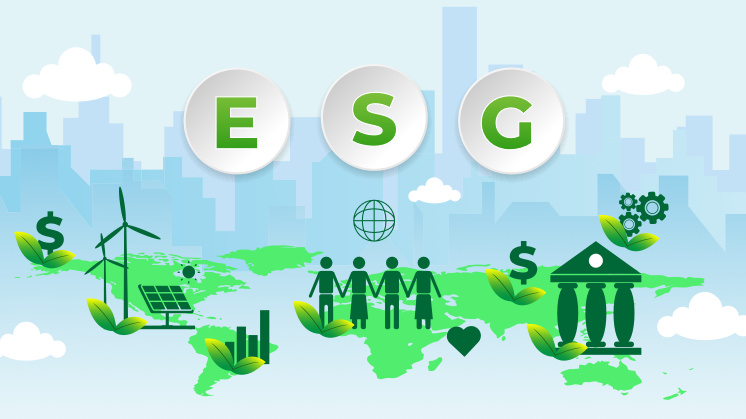ESG Embedded in the Business Model
Companies large and small have embraced business models where making a positive social impact is at the heart of their mission. Why? Because doing good is good for business.
As social, environmental, and economic movements continue to gain momentum, promoting social good is a growing priority for consumers, public agencies, governments, and the private sector. Companies can’t do this alone. They need to engage the entire ecosystem of supplier partners to drive a positive impact. And this puts Procurement center stage. Procurement teams have an opportunity to level the playing field for diverse suppliers and communities through social Procurement.
Governments and the Private Sector Driving the Change
According to the World Bank, governments-purchased goods and services from the private sector — amounted to $13 trillion out of global GDP of nearly $95 trillion in 2021. – Source: World Bank
According to White House sources, the U.S. Federal government alone spent nearly $600 billion on goods and services in FY 2020. Such large-scale purchasing decisions can steer investment, as in the case of electric vehicle production, and spur innovation, as in the case of COVID-19 vaccine development. – Source: White House As the private sector meet the needs of government procurement, they will need to work upstream with their diverse supply base.
Procurement is the lever that governments and the private sector use to enable diverse suppliers, smallholder farmers, women, and minority-owned businesses to thrive. This drives the economy, creating jobs and opportunities by lifting entire communities. These activities are giving rise to social Procurement.
Social Procurement represents a fundamental change of approach. Corporations actively seek to do business with other entities that are themselves socially responsible, in turn enabling the corporation to become sustainable and equitable throughout its core business activities.
Doing Good is Good for Business
I said before that doing good is good for business. Let’s look at a case study example putting this theory to practice by looking at Unilever.
In 2018, Unilever’s 28 Sustainable Living Brands – those taking action to support positive change for people and the planet – grew 69% faster than the rest of portfolio. That’s up from 46% in 2017. Those brands also delivered 75% of the company’s overall growth that year. How did Procurement support the growth of these sustainable brands?
Unilever’s Partner with Purpose (UPWP) program, which launched in 2020, and prior to that, the Partner-to-Win program dating back to 2011, are taking purpose-led partnerships to a whole new level to fuel industry-leading innovations, protect and regenerate nature and make sustainable living commonplace.
Companies create incentives for suppliers to embrace sustainability through co-innovation, co-development, and co-marketing. Everyone wins in the process.
Procurement is the custodian of these strategic partnerships that enable the business’s ESG mission. They are steering and coaching the suppliers to meet and exceed the social impact briefs. They recognize those that rise to the challenge – whether through innovation, invention, or business practice, these suppliers are being spotlighted by Procurement through Supplier of the Year Awards, but the ultimate result, is increased business.
Long gone are the days when Procurement spoke only about cost savings. Procurement is now driving the top line and enabling real value creation by leading the charge on behalf of their businesses. By partnering based on shared values, social Procurement is creating a positive impact on the environment, people, and the planet.

